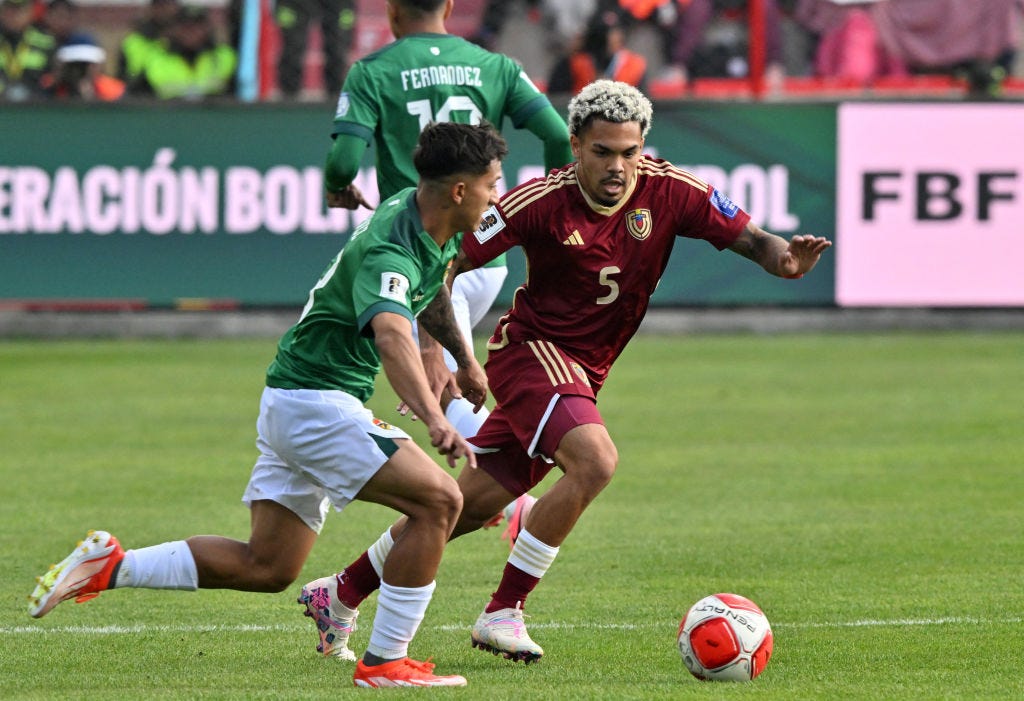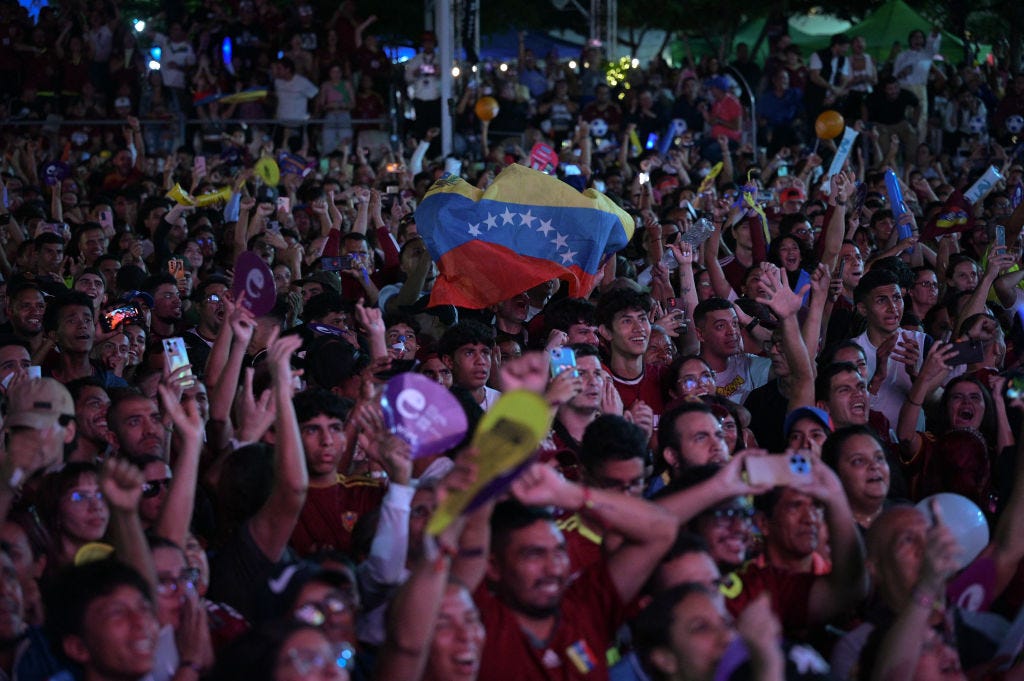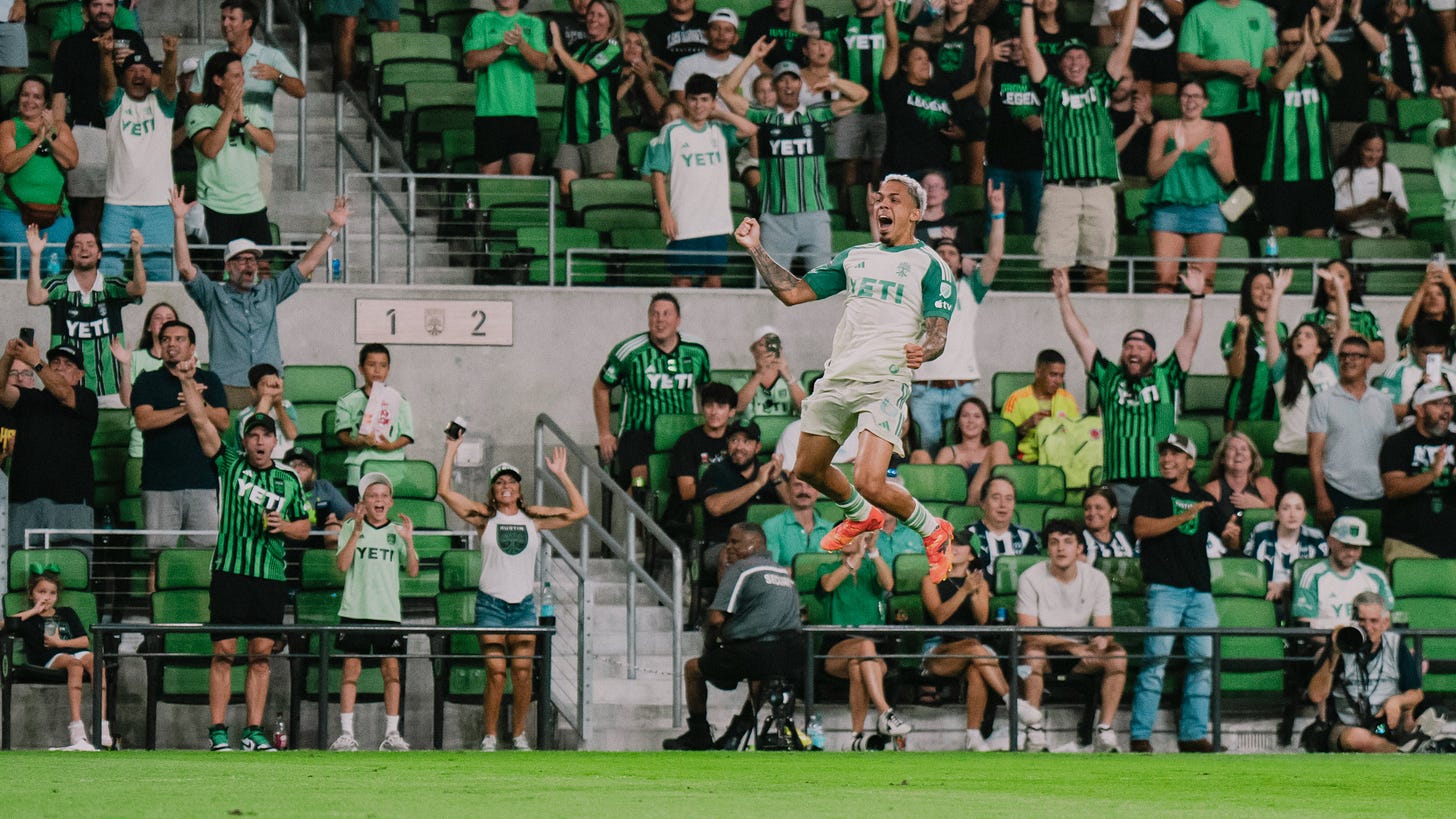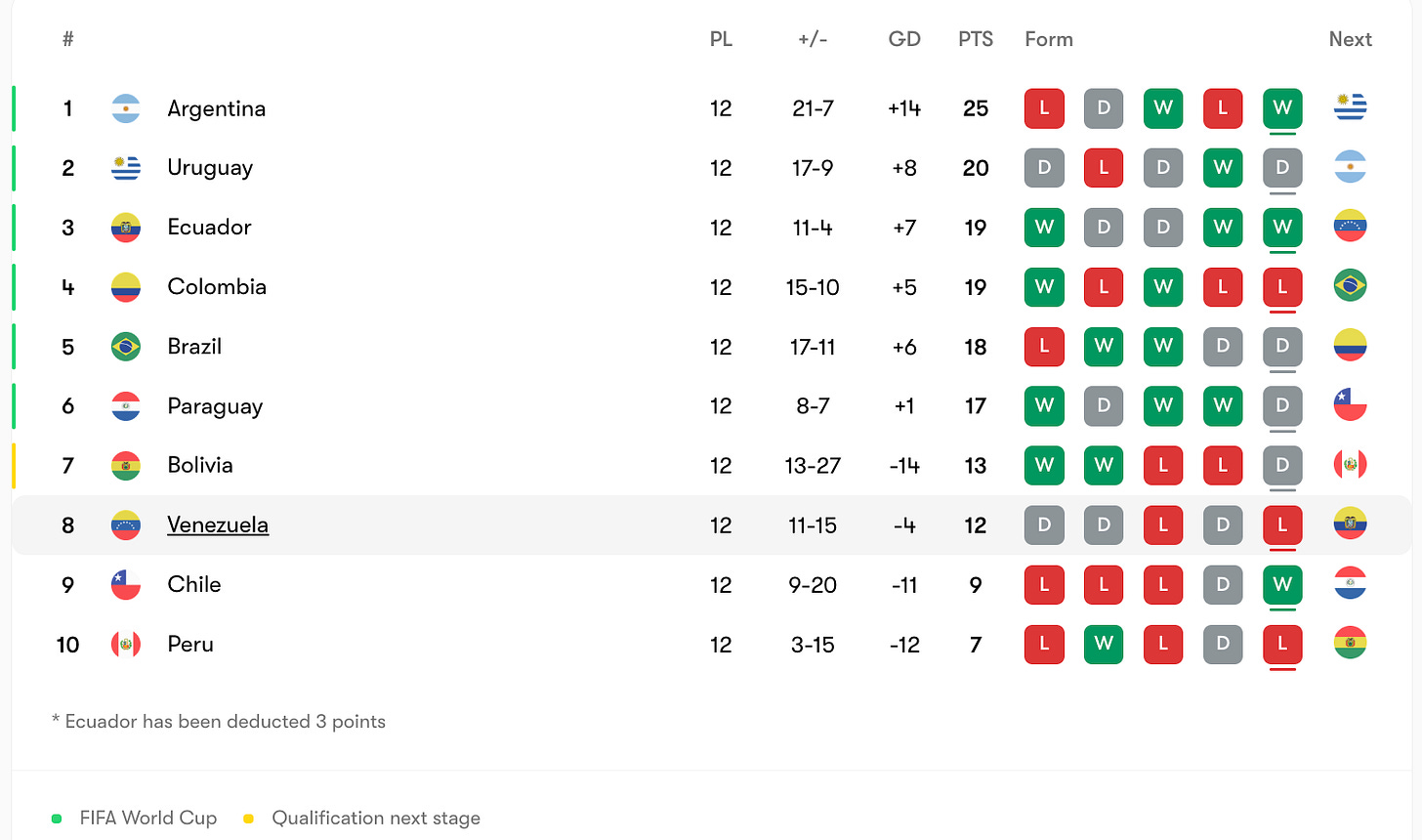🇻🇪🇺🇸 After complicated migration journey, Pereira hopes to make the most of Vinotinto chances
The Austin FC midfielder will face many friends vs. the USMNT on Saturday.
Dani Pereira recalls the moment he thought he might get his way. His family went out to eat in Roanoke, Virginia. He was 15 and had just arrived in the U.S. a few months earlier. He missed his friends. He missed his soccer team. He missed home.
When his parents asked if they should chase the American dream or return to Caracas, he didn’t hesitate. They had to return.
They didn’t listen.
“It sucked. I'm not gonna lie, I didn't want to do it. I wasn't comfortable,” Pereira said Friday in a phone interview. “Imagine yourself at 15 going to a whole new country where you don't speak the language. You still gotta go to school. You still gotta make friends, you just gotta live a life and you can really express yourself or understand anything.
“I know that my parents were doing it for what was best for us, and obviously I just went with the flow.”
Rather than going back to Caracas, Pereira and his family sought asylum, beginning procedures that are still not finalized almost a decade later. Staying in the U.S. meant everything his life changed. The only constants? Being a great soccer player and using the sport to make friends.
Today, he’s preparing to suit up for the Venezuela national team against the United States in a friendly Saturday. It will be his first match with the national team since a World Cup qualification defeat to Bolivia, but while the stakes are much lower Pereira doesn’t take any opportunity with the Vinotinto for granted.
After all, he wasn’t sure he’d ever get the chance to suit up for the national team. His status as an asylum-seeker meant he only could leave the U.S. when granted permission. After his Venezuelan passport expired, he couldn’t even do that meaning he missed team trips to Canada and only could accept call-ups for Venezuela when the team journeyed to the U.S.
His mother found a lawyer who suggested Pereira pursue a talent visa rather than keep hoping there would be movement on his asylum claim. The shift in tact worked, and Pereira now has a current Venezuelan passport, a U.S. green card and six caps for the Venezuela senior men’s national team.

When he returned to Caracas for the new passport, a process aided by the Venezuelan Football Federation, he felt like a celebrity. Family still in town, old friends and others clamored to visit with him, having watched as Pereira rose from a top high school player, to a Virginia Tech standout, to the first pick in the 2021 MLS Draft, to a regular starter with Austin FC.
Now, thanks to the passport and the ability to both stay in the U.S. and travel abroad, he’d add Venezuela national team player to the list. Pereira was named to the 2024 Copa América roster and also has been called in for World Cup qualification.
“This is a reward for all those people, and for me as well, to put on the jersey and represent the whole country - for my family, my family in Venezuela,” he said. “Every time I put it on it gives you chills.”
Pereira also has grown to love the United States, overcoming the difficulties he articulated at that family meeting nine years ago and finding his second home. Soccer, he said, helped him find a community in Virginia, where the family moved since his brother already had moved there to link up with an aunt who taught at a local college.
After coming onto the Venezuela youth national teams’ radar as an attacking midfielder, Pereira gradually slid back as a two-way player or even a defensive midfielder. He now wears the No. 6 in Austin, where he has played more than 2,000 league minutes each of the last three seasons.
He’s also made friendships in the Austin locker room and beyond, adding a fun quirk to Saturday’s friendly against a U.S. roster made up almost entirely of MLS rivals.
“I’m playing against some guys I’ve been playing for three, four years,” Pereira said. “Obviously, it’s exciting. They enjoy playing against me, I enjoy playing against them. It’ll be a fun one for sure.”
With the match falling outside a FIFA window, Venezuela manager Fernando “Bocha” Batista has named a relatively inexperienced side. Pereira has more caps than all but six other players.
After several strong results at the start of the qualification campaign in 2023, including a draw with Brazil in Brazil, the Vinotinto have stagnated and currently sit outside the playoff places. There are still six matches left - certainly enough time to make up the difference between seventh-placed Bolivia and get to the playoff places.
The loss to Bolivia, Pereira’s first start as a pro outside North American soil, was a painful one for Venezuela against a direct rival - even though it was conditioned by Bolivia’s commitment to making opponents suffer at the highest altitude possible.
“These games are not easy. That Bolivia game I got to play in, it was not fun,” Pereira said. “You can’t breathe. That was one of the first opportunities I got to play, and I tried to maximize it, but my lungs … The coaches told me too, you can’t take any conclusions from that game. Games like this friendly, are the games where I can show that I can play for the national team are the ones I have to take advantage.
“That’s what I’m going to try to do: Make a name for myself and show I can play.”
Given the Venezuelan population of Miami and the surrounding area, he’ll have support from thousands of fans wearing the country’s wine-colored jersey Saturday at Chase Stadium. Many are still in flux when it comes to their own immigration status.

Some, like Pereira’s family, are seeking asylum. Others are currently protected from deportation by Temporary Protected Status, with Venezuela currently a country the Department of Homeland Security has designated as one that has “extraordinary and temporary conditions … that prevent individuals from safely returning.” It also is possible to be awaiting a verdict on whether or not asylum will be granted while being protected from deportation by TPS.
The TPS designation recently was extended through September of 2026, though many immigrants in the U.S. with TPS are concerned about their continued protection as Donald Trump becomes president. TPS was revoked for many countries during his previous administration.
With the political future in Venezuela also increasingly cloudy, there will be banners and statements in the Fort Lauderdale crowd Saturday as well. Once the whistle blows, however, there will be the familiar moments of joy, frustration and passion all fans experience during the 90 minutes.

Pereira hopes to provide more euphoria than frustration for his parents. They’ll be in the stands, more certain than ever that they were wise not to give a teenage Dani the deciding vote back at that restaurant in the 2010s.
“They're super proud. They’ve enjoyed watching me play since high school,” Pereira said. They never miss a game here in the U.S. for the national team.
“They love watching me play for the national team. They cry every time they see me playing for the national team.”
The tears come because of the pride but also because Pereira playing for the country hasn’t become normal yet. He hopes that Saturday can be the start of more and more opportunities for Venezuela, more opportunities to make his parents, his brother, his family in Venezuela and Venezuelans scattered all over the world proud.






I wish I could just read a soccer story without the world intruding. Yesterday I read Henry Bushnell’s story about the US visa system potentially keeping visitors from the World Cup, and just before this I read a WaPo story about the deportations potentially coming, and now this with his parents with unresolved claims for the last decade… argh.
Another great biographical article, Jon. I don't know where else I would've learned about his and his family's story - which obviously is more heart-wrenching than they should have to deal with. I'm glad to have at least learned more about him as an individual.